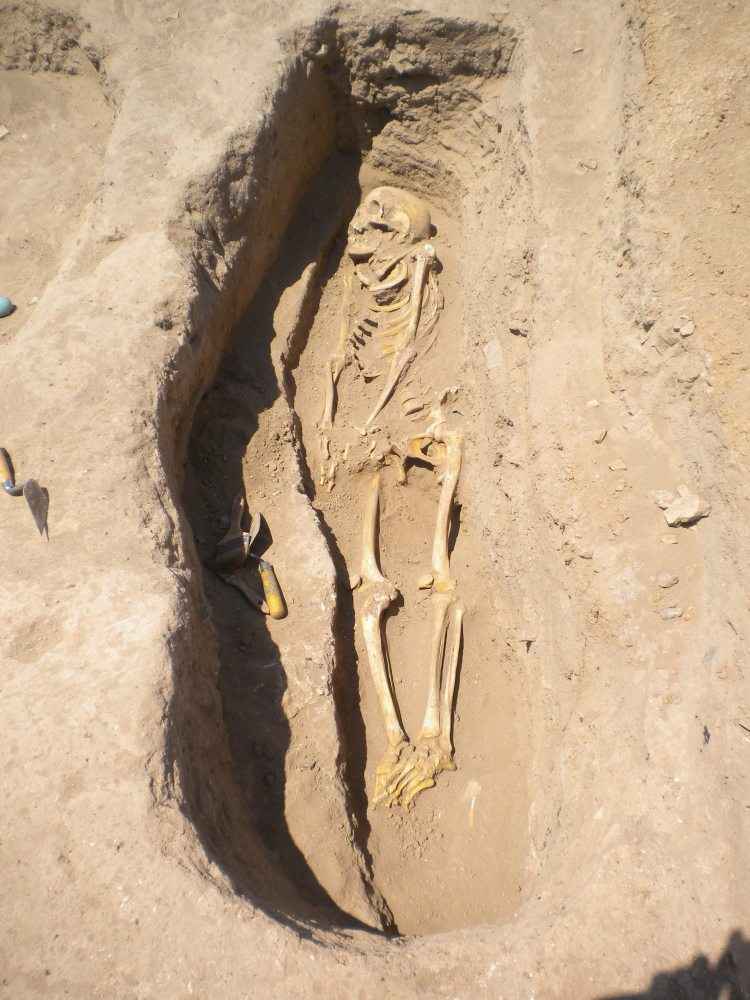Ancient Parasite Suggests Human Technology Contributed to Spread of Diseases

This article originally appeared in UChicago News on 20 June.
The discovery of a schistosomiasis parasite egg in a 6,200-year-old grave at a prehistoric town by the Euphrates River in Syria may be the first evidence that agricultural irrigation systems in the Middle East contributed to disease burden.
The research from the University of Chicago’s Oriental Institute, the University of Cambridge and the Cyprus Institute appears in the new edition of The Lancet Infectious Diseases.
Schistosomiasis is a disease caused by several species of flatworm parasites that live in the blood vessels of the bladder and intestines. Infection can result in anaemia, kidney failure and bladder cancer. This research shows it may have been spread by the introduction of crop irrigation in ancient Mesopotamia, the region along the Tigris-Euphrates river system that covers parts of modern-day Iraq, Iran, Kuwait, Syria and Turkey.
The discovery might be among the oldest evidence of man-made technology inadvertently causing disease outbreaks, according to Piers Mitchell at Cambridge, one of the paper’s authors.
“The individual who contracted the parasite might have done so through the use of irrigation systems that were starting to be introduced in Mesopotamia around 7,500 years ago. The parasite spends part of its life cycle in snails that live in warm fresh water, before leaving the snail to burrow through the skin of people wading or swimming in the water. These irrigation systems distributed water to crops and may have triggered the beginning of the enormous disease burden that schistosomiasis has caused over the past 6,000 years,” Mitchell said.
"This is an important discovery, not only for the history of medicine, but for the way it reminds us how completely human culture is entwined with its environmental context,” said Gil Stein, director of the Oriental Institute and one of the paper’s co-authors. “The invention of irrigation was a major technological breakthrough, and yet, like any technology, it had unintended consequences and side effects. In fact, the development of civilization was very much a trade-off: more food, and a more reliable food supply, came at the cost of more disease.”
The discovery at Tell Zeidan in Syria was made by an international team of archaeologists and biological anthropologists working at Cambridge, the Cyprus Institute and the Oriental Institute. It shows that the parasite that infected humans there at least a thousand years earlier than has been found in Egypt. The oldest schistosomiasis egg found previously was in Egyptian mummies from 5,200 years ago.
The egg was found in the pelvic area of the burial, where the intestines and bladder would have been during life. Control soil samples from the head and foot areas of the grave contained no parasitic eggs, suggesting that the gravesite was not contaminated with the parasite more recently.
“Schistosomiasis has become progressively more common over time, so that it causes a huge burden across the world today, with over 200 million people infected. It causes anemia, which significantly decreases physical productivity in infected people, and may also cause bladder cancer. We would expect these consequences in ancient peoples to have had a significant impact upon early civilizations in the region,” said Mitchell.